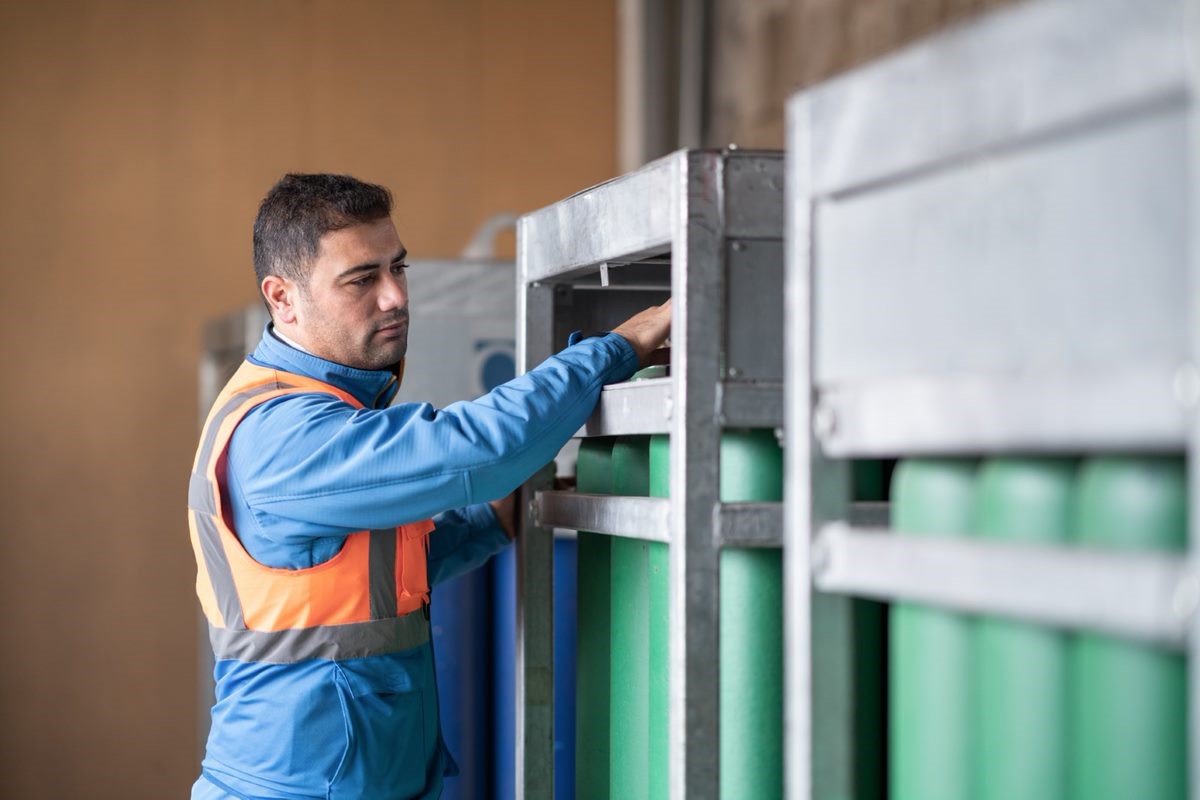New report highlights alarming lack of hydrogen training

Employees across many sectors, from gas to retail workers, will need to have hydrogen knowledge. Image: Unsplash.
In summary
- A new report by the Victorian Hydrogen Hub (VH2) highlights the urgent need for hydrogen skills and training across Australia
- The Hydrogen Skills Roadmap identifies the jobs impacted and skills required to achieve Australia’s carbon emission reduction targets
- Sectors across the nation, from primary schools, to retailers, to engineers, are in critical need of reskilling and upskilling
From secondary schools to university, trades to big business, Australia lacks the hydrogen skills and training capabilities it needs to achieve its newly legislated carbon reduction targets, according to new research by Swinburne University of Technology’s Victorian Hydrogen Hub (VH2).
Mechanics and drivers, gas and electrical workers, plumbers and technicians are just some of the people VH2’s Hydrogen Skills Roadmap says are likely to be impacted, making skilling new workers and upskilling existing workers a pressing issue facing the nation.
Heavy vehicle transport was identified as an area for urgent attention, as the hydrogen transition requires diesel mechanics to update their skills in the near term.
In collaboration with over 37 industry representatives, VH2’s Hydrogen Skills Roadmap identifies the jobs impacted and the skills required for the burgeoning hydrogen sector, which will be critical to achieving Australia’s carbon emission reduction targets. It also collates existing education and training in Australia and overseas.
The report analysed hydrogen-related jobs advertised online from October 2021 to April 2022 and found that, despite the serious lack of hydrogen skills and training available, the majority of roles required extensive experience and knowledge.
Swinburne’s Deputy Vice-Chancellor (Research) Professor Karen Hapgood says, “as we move towards a more innovative and sustainable planet through hydrogen technology, we must be focused on teaching the skills required to make this technology a reality.
“At Swinburne, we are committed to ensuring we develop the skills that industry needs and that students require for the jobs of the future, across vocational education, higher education and research.”

Throughout a period of seven months, most job advertisements in the Australian hydrogen industry required employees with extensive experience, despite the lack of training available.
The next steps to a hydrogen economy
The implementation of hydrogen into the Victorian economy is a key strategy in the state government’s plan to reach zero emissions by 2050. To ensure Victoria and the rest of Australia remains engaged in the growing hydrogen economy, the report urgently recommends:
- Hydrogen content to be introduced to primary and secondary school curriculum
- Hydrogen subjects and industry engagement programs to be included in higher education
- National ‘train-the-trainer’ program to be designed and implemented in collaboration with industry groups and hydrogen hubs
- National suite of micro-credentials to be made available to address immediate skills gaps
- Further research to be undertaken to analyse specific skill sets within the gas and hydrogen economy
- A Hydrogen Skills Centre to be established to leverage research and grow skills and knowledge.
Project Manager of the Hydrogen Skills Roadmap Kerrin Pryor says, “after nearly 12 months of consultations, surveys and research, I'm so pleased to share this work publicly.
“Spreading the word about the urgent requirements needed in Australia to upskill and in some cases, re-skill the workforce to work safely and effectively with hydrogen is so important in helping to achieve the nation's emission targets within the hydrogen trajectory.
“These recommendations, particularly the need for a ‘train the trainer’-style hydrogen course, are incredibly important to our future. It is clear that Australia is nowhere near where it needs to be, and that everyone, from retail workers to engineers, will play vital parts in the hydrogen economy.”
The Hydrogen Skills Roadmap is available here.
-
Media Enquiries
Related articles
-

- Sustainability
Expert opinion: Nuclear power has ‘merits’, but investing in renewables ensures long-term energy security
The opposition is promising to build seven nuclear power stations but a Swinburne expert says it's possible to transition our energy system without relying on nuclear power.
Wednesday 19 June 2024 -

- Technology
- Science
- Sustainability
- Engineering
CSIRO and Swinburne invest in green steel and mineral processing to help industry get to net zero
CSIRO and Swinburne have established a new partnership to tackle global decarbonisation with innovative green steel and mineral processing research and development.
Thursday 01 February 2024 -

- Trades
- University
- Sustainability
Transforming Indigenous housing with future-forward solutions
Swinburne University of Technology has launched a new Indigenous Building Co-Fab initiative. The initiative will tackle housing affordability and sustainability by creating innovative pathways to upskilling communities themselves.
Tuesday 19 December 2023 -

- University
- Sustainability
French and Australian governments announce new partnership to tackle global energy crisis
Swinburne University of Technology will host a historic new partnership between France and Australia, FACET: the French-Australian Centre for Energy Transition.
Friday 08 December 2023 -

- Sustainability
- University
Green partnership to accelerate Swinburne’s research impact
Swinburne has partnered with Twynam’s Earth Fund to drive the commercialisation of decarbonisation research, accelerating the university’s innovation ecosystem.
Tuesday 21 November 2023

